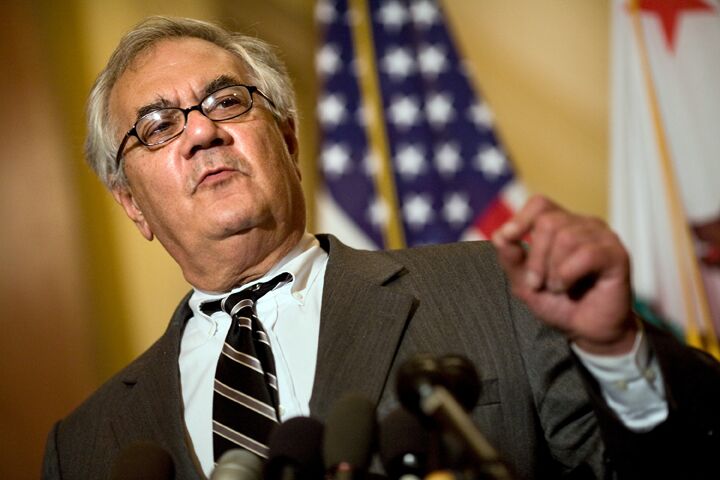
Why There Is No Confidence in Our Financial System
Scan the business headlines and all you see are more casualties. Governments worldwide are scrambling to enact bank-saving legislation. Fear, crisis, depression and meltdown saturate the markets.
In America, the bailout plan that was supposed to restore confidence has done virtually nothing. The markets continue their precipitous decline, with the Dow Jones sinking below 10,000 for the first time in four years. A cloud of mistrust, fear and lack of confidence has smothered this country. And when the system is based on confidence, that cloud is liable to turn into a whirlwind.
Why have the government’s efforts to ward off the financial storm only inspired more fear and doubt?
The first and most obvious problem has been their apparent inconsistency.
Federal Reserve Chief Ben Bernanke and Treasury Secretary Henry Paulson committed public money to save investment bank Bear Stearns, which they deemed too big to fail at $300 billion in liabilities. Yet they allowed Lehman Brothers to die in bankruptcy, even though that investment bank was twice as big.
Then there were the mortgage behemoths Fannie Mae and Freddie Mac, which the government said were fundamentally sound—right before they nearly went bankrupt and the government had to nationalize them, wiping out all shareholders. Yet aig was allowed to stay publicly traded (although the government did buy a big chunk), and investors were able to keep some of their equity.
Don’t forget how Washington Mutual and Wachovia were forced into the arms of other institutions, yet other banks with balance sheets just as atrocious, like Citigroup and National City, have been allowed to live.
And as for the big bailout plan, cynics might note that it mysteriously wasn’t pushed until runs on Goldman Sachs—the company Paulson was formerly ceo of—made it likely that Goldman too could collapse.
With the lack of transparency and the apparent confusion in Washington, investors are left to wonder if conditions really are getting out of hand. There are of course many factors that go into these decisions, but the relatively unexplained inconsistency of the moves creates a perception that the government is acting arbitrarily at best, and incompetently at worst. How are investors supposed to keep their confidence in the system when the government can take control of a bank whenever it deems it necessary?
The government’s inconsistency is not the only reason there is no confidence in our system. People are also afraid because the government has yet to show any real leadership in order to guide us out of this storm.
For the average person, the lack of leadership became painfully obvious when the bailout plan first came to a vote at the end of September. President Bush told Congress, “Our entire economy is in danger.” Right or wrong, he called for immediate action to pull the nation out of the financial crisis. The House of Representatives answered Bush’s call to duty by voting down the plan and going on holiday for two days.
Americans saw their Congress ignore the directive the chief executive gave to them. Not very inspiring, is it?
And when Congress did finally leap into action and pass the bailout plan, investors were left wondering how good a plan it actually was if it took $149 billion in additional pork to buy the votes—including $109 million for building nascar race tracks, $478 million for film and television producers, and $200,000 a year for the production of wooden arrows for children. Not exactly a rousing, robust way for our elected representatives to demonstrate leadership.
Our government expects the nation to trust that it has the solution, yet it was the government that created the conditions that fostered the crisis in the first place. It was former Fed Chief Alan Greenspan who encouraged the creation of the housing and credit bubbles by keeping interest rates low. It was the same policy that discouraged savings and encouraged borrowing and spending, jeopardizing personal finances. Yes, Paulson and Bernanke may be working feverishly to fix the problem they helped create—but now investors wonder why they should trust the fixes from the very institutions that caused the problems.
If our government and our experts can’t fix our economic problems, who can? Americans may hope that a new president with a new team might turn things around. But both presidential candidates are from the same Congress that encouraged the policies that led to today’s problems, and both will rely heavily on the same experts, from the same schools, who promote the same underlying thinking that got America into this mess. What change?
This lack of confidence-inspiring and competent leadership is actually a curse from God. In Isaiah 3, God says He would take away “the prudent … the counselor … and the eloquent orator” (Isaiah 3:1-3). Where were the prudent counselors in our government to prevent the financial storm? Where are the counselors with prudent solutions and inspiring methods of delivering these solutions to the American people?
A cloud of fear and mistrust still hangs over America’s financial system. Unfortunately, it is confidence that is the basis of the American financial system. And if confidence evaporates, then America’s financial system, burdened by $10 trillion of debt, will quickly disintegrate.
But there are steps you can take to ensure your financial house is sound against wild markets and ineffective fixes. Read our article “Ending Your Financial Worries” and you will learn the only true source of confidence and trust in any financial house.
